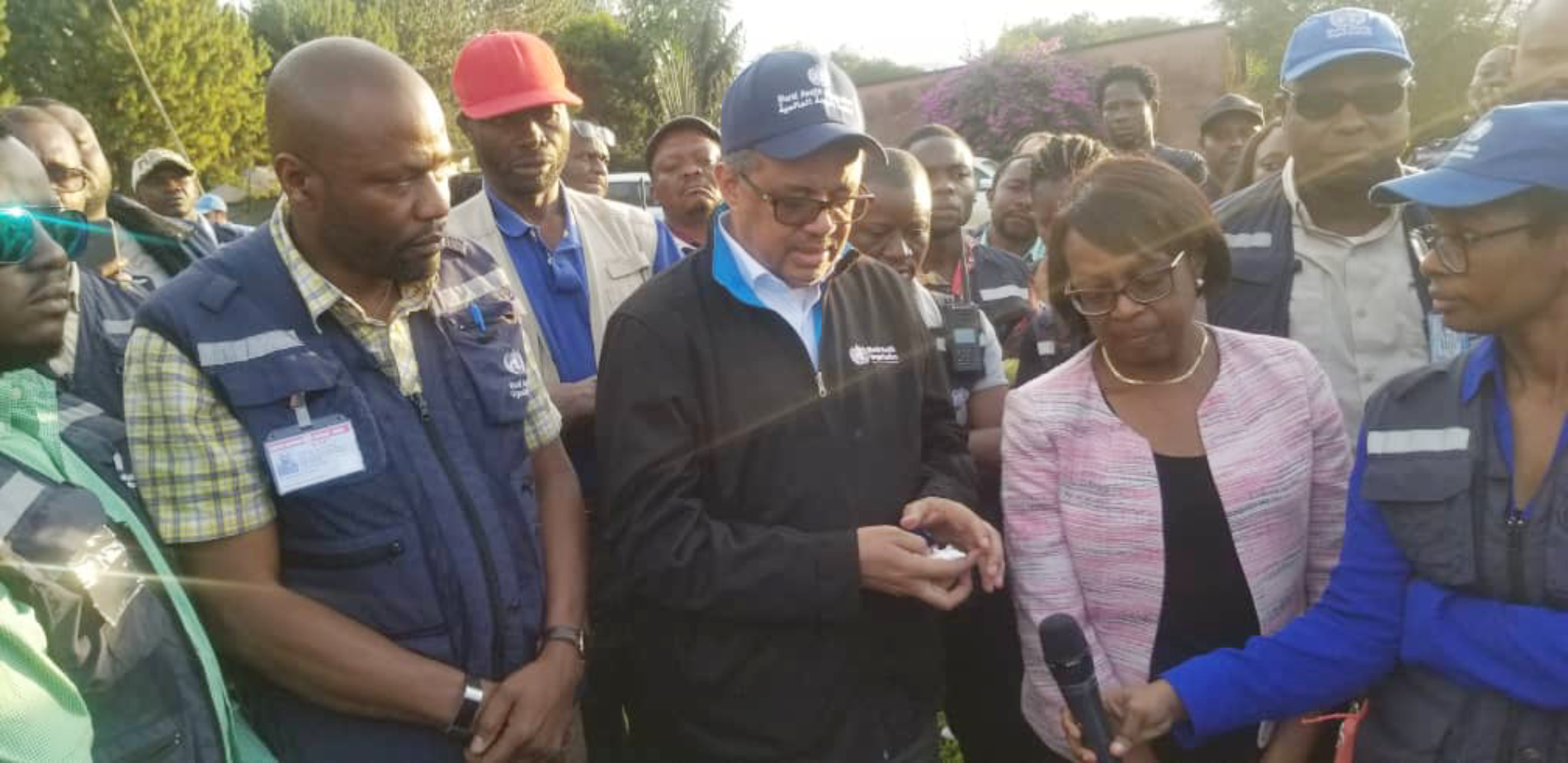
Butembo, 30 April 2019—World Health Organization (WHO) Director-General Dr Tedros Adhanom Ghebreyesus and WHO Regional Director for Africa, Dr Matshidiso Moeti, have concluded a visit to Butembo, in the Democratic Republic of the Congo. It was in Butembo on 19 April that WHO epidemiologist Dr Richard Mouzoko was killed by armed men while he and colleagues were working on the Ebola response.
“Dr Mouzoko’s death moved me profoundly. On this mission, he was on my mind the whole time as we met with other dedicated colleagues. I am also profoundly worried about the situation. Cases are increasing because of violent acts that set us back each time. We have already begun to adjust our response.”
Dr Tedros and Dr Moeti traveled to Butembo to express their gratitude and show support to WHO and partner organization staff, while also assessing the next steps needed to strengthen both security and the Ebola response effort. They also met with local political, business and religious leaders, and called on them to accelerate their efforts to stabilize the surrounding environment.
They urged the international community to step up support to contain the Ebola outbreak, including filling the funding gap that threatens to stymie the Ebola response.
Most Ebola response activities, including community engagement, vaccination, and case investigation, have been re-launched following a slowdown in the wake of the attack that left Dr. Mouzoko dead and two people injured. However, they expressed deep concern that a rise in reported cases in recent weeks is straining resources even further.
“My pride and respect for my extraordinary colleagues has only grown,” said Dr Moeti. “They have been through something unimaginable and yet are willing to continue this vital work. We need the security situation to be under control for them and for the local people. During our mission, we had fruitful discussions with the partners who provide security cover to see what more could be done. Meanwhile, we will continue to work with various groups and embed our response at the community level.”
The delegation met the Mayor of Butembo, Sylvain Kanyamanda Mbusa, the US Ambassador, Michael A. Hammer, the Deputy Special Representative of the peacekeeping mission to the DRC (MONUSCO), David Gressly, and other UN partners, business, religious and political leaders, and NGOs active in the response.
“We are entering a phase where we will need major shifts in the response,” said Dr Tedros. WHO and partners cannot tackle these challenges without the international community stepping in to fill the sizeable funding gap.”
Only half of the currently requested funds have been received, which could lead to WHO and partners rolling back some activities precisely when they are most needed.
“We will continue to adjust the response, as we have done for each context in each community,” said Dr Moeti. “This worrisome rise in cases is a further call to action. In the end, it is only through the ownership by all the affected communities that the outbreak will end. Some would have Ebola drive us apart. We can only defeat it if we all work together.”


